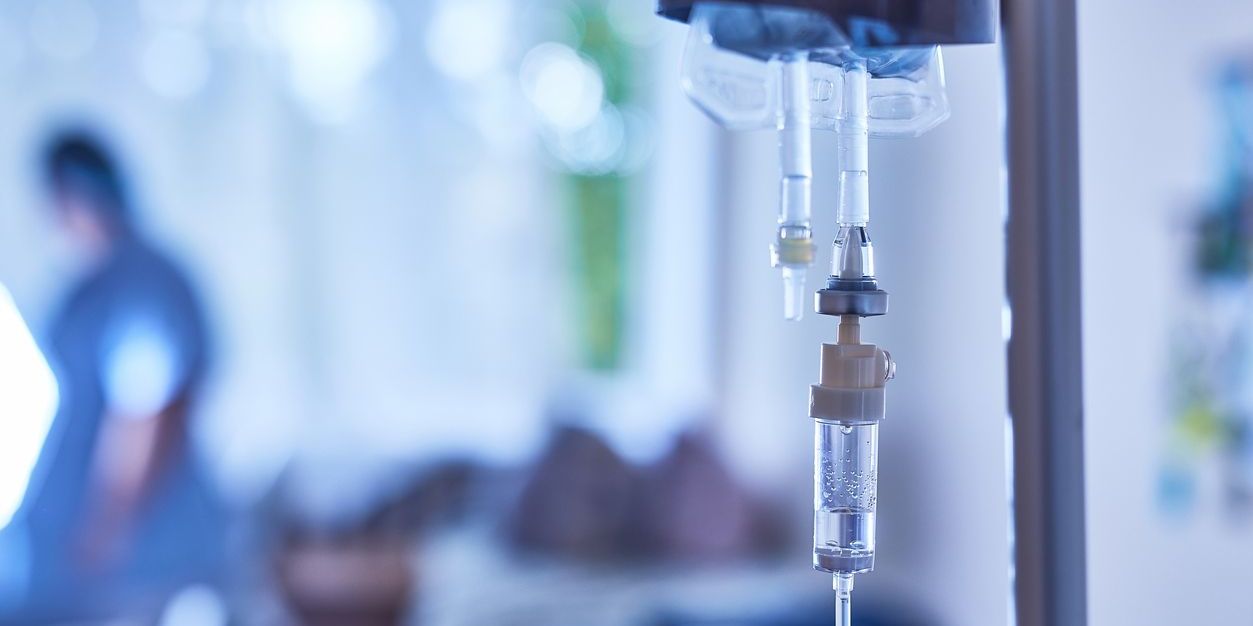What is Chemotherapy?

Chemotherapy, often called “chemo,” is one of the most common treatments for cancer. But if you or someone you love is facing a brain cancer treatment, the word can bring up a lot of questions. What exactly is chemotherapy? When is it used? And what does it feel like to go through it? This guide is here to walk you through the basics.
What Is Chemotherapy?
Chemotherapy uses powerful drugs to target and kill cancer cells. These drugs travel through your bloodstream, which means they can reach cancer cells throughout the body, including those that may have spread beyond the brain.
It’s a foundational treatment for many types of brain tumors and can be delivered in several ways:
- Intravenously (IV) through a vein
- Orally in pill or liquid form
- Via injections or wafers, depending on your care plan
Chemo is often used alongside other therapies like radiation or surgery as part of a broader treatment strategy, though radiation therapy and chemotherapy are not the same and work in different ways to treat brain tumors.

When Is Chemotherapy Used for Brain Tumors?
Your care team may recommend chemotherapy at different stages depending on your tumor type, its location, and how it responds to other treatments.
Here are a few common approaches:
- Primary Treatment: When surgery or radiation isn’t possible, chemotherapy may be the main way to shrink or slow tumor growth.
- Adjuvant Treatment: After surgery or radiation, chemo can help destroy lingering cancer cells.
- Neoadjuvant Treatment: Sometimes, chemo is used before surgery or radiation to shrink tumors and make them easier to remove.
- Palliative Care: In advanced cases, chemo can ease symptoms and improve quality of life, even if the goal isn’t a cure.
Wondering about benign brain tumors? Read our related blog: Do Benign Tumors Need Chemotherapy?
Types of Chemotherapy
Not all chemotherapy is the same. There are several types of drugs, and they work in different ways:
- Cytotoxic Drugs: These are traditional chemotherapy drugs that stop cancer cells from growing and dividing.
- Targeted Therapy: These newer drugs focus on specific markers or proteins found in cancer cells, which helps spare healthy tissue.
- Immunotherapy: This approach activates your immune system to recognize and fight cancer cells.
Your doctor will choose the best treatment and brain cancer rehabilitation options for your tumor type, overall health, and treatment goals.
What to Expect During Chemotherapy
Chemotherapy is usually given in cycles or treatment days followed by rest days to let your body recover. Some patients come in once a week, while others follow a different schedule based on their specific drug plan.
Your care team will guide you every step of the way. Treatments may happen in a clinic, a hospital, or sometimes even at home.
Common side effects may include:
- Nausea or vomiting
- Fatigue
- Hair loss
- Changes in appetite
- Lowered blood counts (which may increase infection risk)
Not every patient experiences all of these symptoms, and many can be managed with medication, rest, and support.
Chemotherapy vs. Radiation: What’s the Difference?
Did you know radiation therapy and chemotherapy are not the same? Here’s why:
|
Chemotherapy |
Radiation Therapy |
|---|---|
|
Uses drugs that travel through the bloodstream to treat the whole body |
Uses focused beams of energy to treat a specific area |
|
Can treat cancer cells that have spread beyond the brain |
Most effective for localized tumors |
|
May cause systemic side effects like fatigue or nausea |
Side effects are often localized (such as skin irritation at the treatment site) |
|
Often given in cycles over weeks or months |
Usually delivered daily over a few weeks |
Is Chemotherapy Right for You?
Every brain tumor and every patient is different. Some tumors respond well to chemotherapy, while others may not. Some people tolerate chemo easily, while others need more support.
That’s why personalized treatment is key. At Duke, we create a care plan tailored to you—your tumor, your goals, and your life.
Your Partner in Care: The Preston Robert Tisch Brain Tumor Center
Choosing where to receive care makes a big difference. At Duke, we specialize in treating brain tumors. We combine cutting-edge treatments like chemotherapy and radiation with compassionate support for every part of your journey, from diagnosis to survivorship.
Whether you’re looking for a second opinion, exploring your treatment options, or preparing for your first round of chemo, our team of neuro-oncology doctors is here to help you move forward with clarity and confidence. In addition to adult care, we’re also leading the way in pediatric brain tumor clinical trials, helping families access innovative therapies designed specifically for children.
👉 Explore our Adult Neuro-Oncology Program
👉 Schedule a consultation
👉 Read more on our blog
Related readings:
- Brain Swelling After Brain Tumor Surgery: What to Expect
- How Likely Am I to Survive a Brain Tumor?
- Understanding the Blood-Brain Barrier in Brain Tumor Treatment
FAQ: Common Questions About Chemotherapy for Brain Tumors
1. Can chemotherapy help with brain tumors?
Yes. Chemotherapy is often used to slow tumor growth, shrink tumors, or destroy remaining cells after surgery or radiation.
2. What’s the difference between chemotherapy and radiation therapy?
Chemotherapy treats the whole body using drugs. Radiation focuses high-energy beams on a specific area to destroy cancer cells.
3. What are the side effects of chemo for brain tumors?
Common side effects include fatigue, nausea, hair loss, and low blood counts—but not everyone experiences all of them.
4. Is chemo safe for brain tumor patients?
Yes, when prescribed by a qualified medical team. Your doctors will monitor your response closely and adjust treatment as needed.
5. How long does chemotherapy last?
It depends on your treatment plan. Some people receive chemo for a few weeks; others may follow longer cycles over several months.